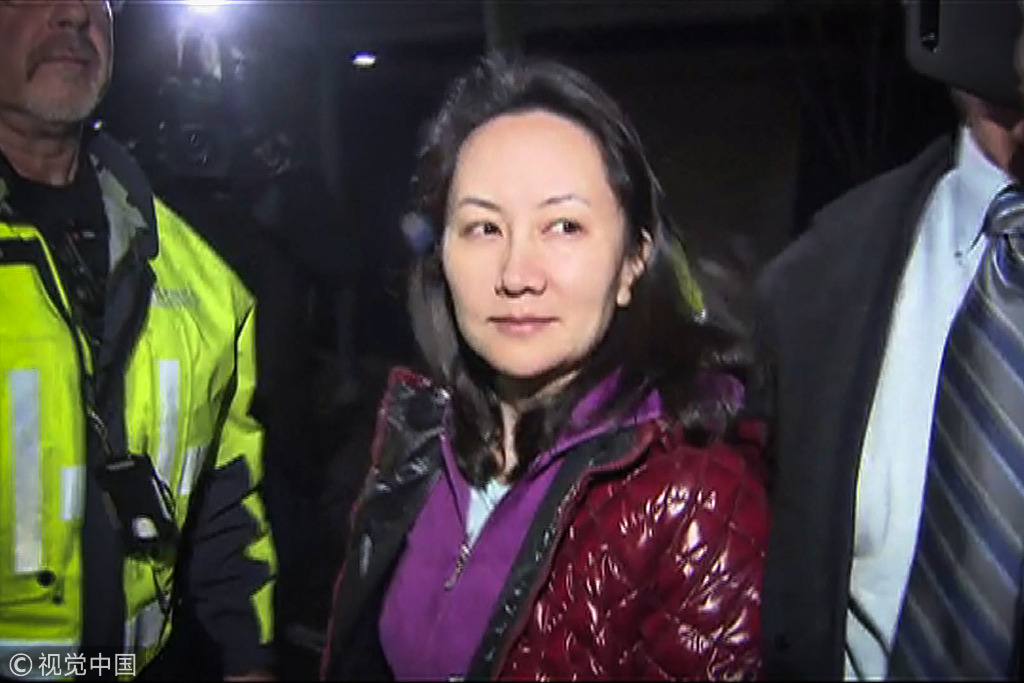Politicized law enforcement Washington's predilection: China Daily editorial
China Daily | Updated: 2018-12-13 21:27

When US State Department spokesman Robert Palladino remarked that the US condemns "all forms of arbitrary detention" on Tuesday, he was commenting on reports that two Canadians have been detained in China.
It would have been welcome and proper if that remark had applied to the detention of Huawei executive Meng Wanzhou by the Canadian authorities at Washington’s request. However, it seems the condemnation Palladino conveyed was directed solely at Beijing.
His words were more revealing of how Washington operates rather than Beijing. Washington naturally assumes the compulsory measures Beijing has taken are politically motivated — an expedient move on Beijing’s part to retaliate against Ottawa — since that is how it operates.
While the timing may have led others to draw the same conclusion, Ottawa has found no indication of any such link, and Beijing has not expressed any cause-and-effect connections. Instead, it has clarified that the two Canadian nationals are being questioned about illegal activities that may threaten national security.
To suggest that Beijing, indignant at the arbitrary detention of a Chinese citizen, may now be embarking on some kind of arbitrary detention spree, locking up visiting Canadians or Americans willy-nilly, merely shows how removed from reality Washington is — or perhaps how intent it is on trying to persuade companies to invest elsewhere.
That this is the impression Washington wants to create is reinforced by reports that it is considering issuing a warning to US citizens, including executives, traveling to China, suggesting they are at risk of being used in retaliation for the detention of Meng.
Interpreting the two detentions in this way represents a serious misreading of the matter, as well as that of China as a country — portraying, as it does, a stubborn, biased picture of China as a country that remains in a state of lawlessness.
Actually, it is Washington’s abusive and politicized use of long-arm jurisdiction — which it claims is simply domestic law enforcement — that has triggered concerns over the travel safety among business people. And Chinese people are also weighing how safe it is for them to visit Canada.
For its need of and commitment to greater openness, China cannot afford the image of having no respect for the rule of law. No innocent foreign nationals, wherever they are from, should fear for their safety visiting or living in China. It seems the same cannot be said of foreign nationals stepping onto Canadian soil, even if they are only changing planes.
























